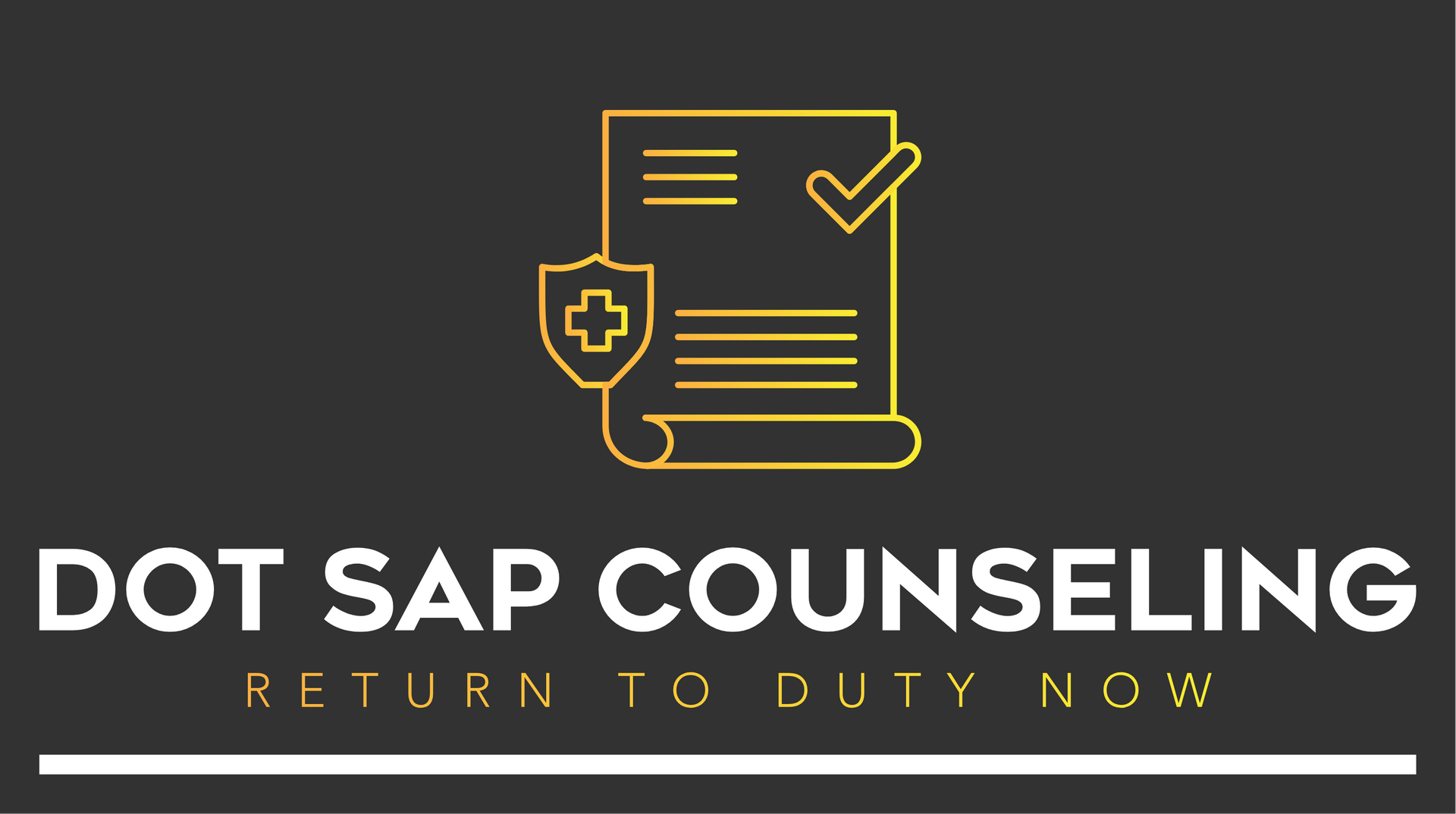Why the Arizona DOT SAP Program is Key to Your Return to Duty Success
Navigating the road to recovery after a substance-related incident can be challenging, but the Arizona DOT SAP Program offers invaluable support.
In this blog, we'll explore the essential reasons why this program is critical for your successful return to duty, providing the guidance and resources you need to get back on track.
1. A Comprehensive Framework for Recovery
The Arizona DOT SAP Program provides a structured approach to recovery, offering clear guidelines that help individuals understand their path to regaining their driving privileges.
This framework not only outlines the necessary steps but also highlights the importance of each stage, ensuring that participants are aware of their progress and can feel a sense of accomplishment at every milestone reached.
Each stage prepares you not just for a return to work, but also for a sustained commitment to personal growth and health, reinforcing the idea that recovery is a journey rather than a destination.
2. Expert Guidance and Support
With access to experienced professionals, participants receive tailored advice and support throughout their recovery journey, ensuring they feel confident and informed every step of the way.
These experts recognize that every individual's situation is unique, offering personalized strategies that not only meet immediate needs but also equip participants with tools for their future.
Feeling supported by dedicated professionals can make all the difference; it provides a safety net that encourages individuals to speak openly about their challenges and triumphs.
3. Personalized Assessment and Monitoring
The program emphasizes personalized assessments, which allows for a tailored plan that addresses individual needs, ensuring a higher success rate upon return to duty.
This focus on individualization means that participants aren't just going through a one-size-fits-all process; instead, they receive attention that corresponds directly to their unique circumstances and aspirations.
Regular monitoring ensures that adjustments can be made in real-time, fostering a dynamic approach to recovery that prioritizes the individual's evolving needs.
4. Reinforcing Accountability and Responsibility
Participants learn the importance of accountability in their recovery process, helping them develop a stronger sense of responsibility, which is crucial for their professional duties.
This isn't just about adhering to rules; it's about creating a deep understanding of one’s actions and their consequences, setting the stage for a more responsible and proactive approach to both work and personal life.
5. Comprehensive Education on Substance Use
Through educational resources, individuals gain knowledge about substance use and its effects, empowering them to make informed decisions that promote a healthier lifestyle.
Understanding the science behind substance use can be eye-opening. It shifts perspectives and encourages participants to reflect on their choices and the motivations behind those choices.
This newfound awareness often leads to profound lifestyle changes, as individuals learn not only what behaviors to avoid but also adopt healthier practices that support long-term sobriety.
6. Supportive Community and Resources
Being part of the Arizona DOT SAP Program connects individuals with a community of others who share similar experiences, fostering a supportive environment for recovery.
This sense of belonging can be incredibly motivating, helping participants realize that they are not alone in their challenges and that recovery is possible with the right support.
7. Access to Additional Recovery Resources
The program opens doors to other resources, such as counseling and support groups, allowing participants to utilize comprehensive tools tailored for their recovery.
These additional resources provide a robust framework for sustainable recovery, ensuring that individuals have access to everything they need on their path to reinstatement.
Counseling, group therapy, and peer support can make a significant difference, offering a variety of perspectives and strategies that further enhance the recovery process.
8. Pathway to Professional Reinstatement
Ultimately, the Arizona DOT SAP Program lays the groundwork for individuals to achieve professional reinstatement, ensuring they are ready to contribute safely and effectively to their roles.
This pathway isn't merely about checking boxes; it's about fostering a deep readiness that instills confidence in employers and assures the public of the individual's commitment to safety.
By focusing on both personal improvement and professional development, participants emerge not just as employees but as valuable, responsible members of their communities.











